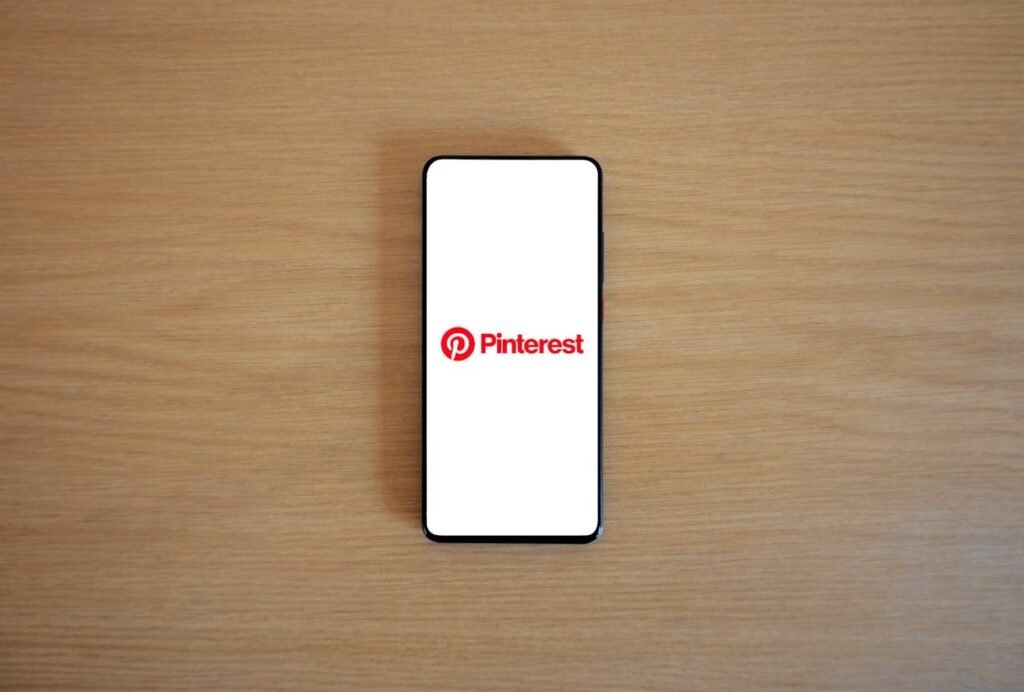Writing a book is a monumental achievement, but getting it into the hands of readers is an entirely different challenge. Successful book marketing is about more than just promoting a product; it’s about connecting with your audience and creating a buzz around your work. Whether you’re a first-time author or a seasoned writer, this guide will provide you with practical, actionable strategies to market your book effectively. We’ll explore how you can turn your book into a bestseller.
Understanding Your Audience
The first step in marketing your book is understanding who your audience is. Knowing your readers’ preferences, interests, and reading habits will help you tailor your marketing efforts to reach them more effectively.
Identifying Your Target Audience
Consider the genre of your book and who it would appeal to. Are you writing a thriller, romance, or non-fiction? Each genre has a distinct audience with specific expectations.
Conduct research to identify demographics such as age, gender, and interests. Use tools like Google Analytics, social media insights, and reader surveys to gather data about your potential readers.
Creating Reader Personas
Create detailed reader personas that represent your ideal readers. Include information such as their age, profession, hobbies, and reading preferences.
These personas will help you visualize your audience and tailor your marketing messages to speak directly to them.
Building an Author Platform
Your author platform is the foundation of your book marketing efforts. It’s the combination of your online presence, personal brand, and connections with your readers.
Developing a Professional Website
Your website is your digital home base. It should be visually appealing, easy to navigate, and contain essential information about you and your book. Include an “About the Author” page, a blog, and a section where readers can purchase your book.
Make sure to optimize your website for search engines by using relevant keywords and keeping the content updated.
Leveraging Social Media
Social media is a powerful tool for connecting with your audience. Choose platforms that your target readers frequent, such as Facebook, Twitter, Instagram, or LinkedIn.
Share engaging content related to your book, writing process, and personal life to build a rapport with your followers. Use social media to announce book launches, share reviews, and interact with your readers.
Creating Compelling Content
Content marketing can help you attract and engage potential readers. By providing valuable and interesting content, you can build a loyal audience and increase interest in your book.
Blogging About Your Book
Start a blog where you share insights about your writing process, themes of your book, character development, and other related topics. Blogging can drive traffic to your website and establish you as an authority in your genre.
Share your blog posts on social media and encourage your readers to comment and share.
Offering Free Samples
Giving away free samples of your book can entice readers to buy the full version. Offer the first chapter or a compelling excerpt on your website and social media.
This can give potential readers a taste of your writing style and story, making them more likely to purchase the complete book.
Building an Email List
An email list is one of the most valuable assets for an author. It allows you to communicate directly with your readers and keep them informed about your book’s progress, launch dates, and special offers.
Creating a Signup Incentive
Encourage visitors to join your email list by offering a freebie, such as a free chapter, an exclusive short story, or a discount on your book. Make the signup process easy and prominent on your website.
Sending Regular Newsletters
Keep your subscribers engaged by sending regular newsletters. Share updates about your book, behind-the-scenes content, upcoming events, and personal stories.
Personalize your emails to make your readers feel special and appreciated.
Networking with Other Authors
Building relationships with other authors can provide mutual benefits and help expand your reach. Networking can lead to collaboration opportunities, cross-promotions, and valuable advice.
Joining Writing Communities
Become a member of writing communities and forums, both online and offline. Participate in discussions, offer support, and share your experiences. Being active in these communities can help you gain exposure and build a supportive network of fellow authors.
Collaborating on Projects
Collaborate with other authors on joint projects, such as anthologies, guest blog posts, or co-hosted events. These collaborations can introduce your book to new audiences and provide fresh content for your marketing efforts.
Leveraging Book Reviews and Testimonials
Positive reviews and testimonials can significantly impact a reader’s decision to purchase your book. They provide social proof and build credibility.
Reaching Out to Book Bloggers and Reviewers
Identify popular book bloggers and reviewers within your genre. Reach out to them with a personalized message, offering a free copy of your book in exchange for an honest review.
Ensure you follow their submission guidelines and respect their time.
Encouraging Reader Reviews
Ask your readers to leave reviews on platforms like Amazon, Goodreads, and your website. Include a polite request for reviews at the end of your book and in your email newsletters.
Engaging with readers who leave reviews can build a community and encourage more feedback.
Hosting Book Launch Events
A book launch event is a great way to generate buzz and celebrate the release of your book. It can be a physical event, a virtual event, or a combination of both.
Planning a Physical Book Launch
If you choose to host a physical event, consider venues like bookstores, libraries, or community centers. Plan activities such as a reading, Q&A session, and book signing.
Promote the event through your website, social media, and local media outlets.
Hosting a Virtual Book Launch
Virtual book launches are accessible to a global audience. Use platforms like Zoom, Facebook Live, or Instagram Live to host your event. Include interactive elements like live readings, audience Q&A, and giveaways.
Promote your virtual launch through your digital channels and encourage attendees to share the event.
Utilizing Paid Advertising

Paid advertising can help you reach a wider audience and boost book sales. Carefully planning and targeting your ads can ensure they reach potential readers effectively.
Running Social Media Ads
Social media platforms like Facebook, Instagram, and Twitter offer targeted advertising options. Create ads that highlight the unique aspects of your book, such as its genre, themes, and reader benefits.
Use eye-catching visuals and compelling copy to attract attention. Monitor the performance of your ads and adjust your strategy as needed.
Using Amazon Ads
Amazon Advertising allows you to promote your book directly to readers who are browsing for new reads. Use Sponsored Products and Sponsored Brands ads to increase your book’s visibility on Amazon.
Experiment with different keywords and bidding strategies to optimize your campaigns.
Engaging with Your Audience
Building a strong relationship with your audience is crucial for long-term success. Engaged readers are more likely to become loyal fans and advocates for your book.
Responding to Comments and Messages
Take the time to respond to comments and messages on your social media platforms and website. Show appreciation for positive feedback and address any questions or concerns.
Engaging with your audience demonstrates that you value their support.
Hosting Interactive Sessions
Host interactive sessions such as live Q&A, webinars, and online workshops. These sessions allow you to connect with your readers on a personal level, answer their questions, and provide deeper insights into your book.
Promote these sessions in advance to maximize participation.
Participating in Book Fairs and Conferences
Attending book fairs and conferences can provide exposure and networking opportunities. These events allow you to meet potential readers, industry professionals, and fellow authors.
Setting Up a Booth
If you attend a book fair, consider setting up a booth to showcase your book. Have copies available for sale, and offer promotional materials like bookmarks and flyers.
Engage with attendees and provide information about your book and writing process.
Speaking at Events
Apply to speak at conferences and literary events. Presenting workshops or participating in panel discussions can position you as an expert in your field and attract attention to your book.
Use these opportunities to share your knowledge and connect with your audience.
Creating an Engaging Book Trailer
A book trailer is a short video that promotes your book. It can be a powerful tool to capture interest and convey the essence of your story visually.
Producing a High-Quality Trailer
Create a professional and engaging book trailer that highlights the key elements of your book. Use high-quality visuals, music, and voiceover to make an impact.
Keep the trailer concise, typically under two minutes, to maintain viewer interest.
Sharing Your Trailer
Share your book trailer on your website, social media platforms, and YouTube. Encourage your followers to share the trailer with their networks.
A compelling trailer can generate excitement and drive traffic to your book’s sales page.
Offering Special Promotions
Special promotions can create a sense of urgency and encourage readers to purchase your book. Strategically timed promotions can boost sales and increase visibility.
Running Limited-Time Discounts
Offer limited-time discounts on your book to attract new readers. Promote these discounts through your website, email list, and social media.
Highlight the savings and emphasize the limited availability to encourage prompt action.
Organizing Giveaways
Organize giveaways to generate excitement and attract attention to your book. Offer signed copies, exclusive content, or related merchandise as prizes.
Promote the giveaway through your marketing channels and encourage participants to share the event.
Partnering with Book Clubs and Libraries

Partnering with book clubs and libraries can increase your book’s visibility and reach a wider audience. These partnerships can also provide valuable word-of-mouth promotion.
Collaborating with Libraries
Contact local libraries to organize book readings, signings, and discussions. Donate copies of your book to library collections to make it accessible to a broader audience.
Libraries often host author events and workshops, providing an excellent opportunity to promote your book and engage with the community.
Engaging with Book Clubs
Reach out to book clubs that focus on your genre and offer to provide copies of your book at a discount. Volunteer to attend their meetings, either in person or virtually, to discuss your book and answer questions.
This interaction can create a deeper connection with readers and encourage them to spread the word about your book.
Utilizing Influencer Marketing
Influencer marketing involves partnering with individuals who have a large and engaged following. Influencers can help amplify your book’s reach and credibility.
Identifying Relevant Influencers
Look for influencers who align with your book’s genre and target audience. This could include bookstagrammers, YouTubers, bloggers, and social media personalities.
Ensure they have an authentic connection with their followers and a genuine interest in promoting your book.
Collaborating on Content
Work with influencers to create engaging content that promotes your book. This could include reviews, unboxing videos, Instagram stories, or live readings.
Provide them with complimentary copies of your book and any additional materials they might need to create compelling content.
Implementing SEO Strategies
Search Engine Optimization (SEO) can help increase the visibility of your book online. By optimizing your website and content, you can attract more organic traffic and potential readers.
Optimizing Your Website
Ensure your website is optimized for search engines by including relevant keywords, meta tags, and high-quality content. Create dedicated pages for your book, including detailed descriptions, excerpts, and purchase links.
Regularly update your blog with relevant content to keep your website fresh and engaging.
Writing SEO-Friendly Descriptions
Write compelling and SEO-friendly descriptions for your book on online retailers like Amazon. Use relevant keywords naturally within your book’s description, title, and metadata.
This can help improve your book’s search ranking and make it easier for potential readers to find.
Exploring Podcast Opportunities
Podcasts are a growing medium and an excellent platform for promoting your book. Being a guest on podcasts can help you reach new audiences and build your personal brand.
Finding Relevant Podcasts
Identify podcasts that align with your book’s themes and target audience. These could include literary podcasts, genre-specific shows, or podcasts that focus on topics related to your book.
Reach out to podcast hosts with a personalized pitch explaining why you would be a great guest.
Preparing for Podcast Interviews
Prepare for podcast interviews by outlining key points you want to discuss, including interesting aspects of your book, your writing process, and any personal anecdotes.
Practice answering common questions and think about how to keep the conversation engaging and informative.
Hosting Webinars and Workshops
Webinars and workshops provide an interactive platform to share your expertise, promote your book, and engage with your audience.
Planning Your Webinar
Choose a topic for your webinar that is relevant to your book and interests your target audience. Plan the content, including a mix of presentation, interactive elements, and Q&A sessions.
Promote your webinar through your website, social media, and email marketing to attract attendees.
Conducting the Webinar
During the webinar, provide valuable insights and keep the audience engaged with interactive elements like polls and Q&A. Use this opportunity to talk about your book and offer exclusive deals to attendees.
Record the webinar and share it on your website and social media for those who couldn’t attend live.
Creating a Street Team
A street team is a group of enthusiastic readers who help promote your book. They can spread the word through word-of-mouth, social media, and other channels.
Recruiting Street Team Members
Recruit street team members by reaching out to your existing readers, social media followers, and email subscribers. Offer incentives such as exclusive content, early access to your book, or special recognition to encourage participation.
Providing Promotional Materials
Equip your street team with promotional materials such as graphics, sample social media posts, and review copies of your book. Provide clear instructions on how they can help promote your book and encourage them to share their efforts.
Monitoring and Analyzing Your Marketing Efforts
Tracking the performance of your marketing efforts is crucial for understanding what works and what doesn’t. Use analytics to make data-driven decisions and optimize your strategy.
Using Analytics Tools
Use tools like Google Analytics, social media insights, and email marketing reports to track key metrics such as website traffic, engagement rates, and conversion rates.
Analyze this data to identify trends and measure the effectiveness of your marketing campaigns.
Adjusting Your Strategy
Based on your analysis, make adjustments to your marketing strategy. Focus on the tactics that yield the best results and refine or discard those that don’t perform as well.
Continuous improvement is key to a successful book marketing strategy.
Building Long-Term Relationships with Readers
Building long-term relationships with your readers can lead to ongoing support and future book sales. Engage with your readers beyond the initial promotion phase to foster loyalty and community.
Creating a Reader Community
Create a reader community through platforms like Facebook Groups, Goodreads, or a dedicated section on your website. Encourage readers to discuss your book, share their thoughts, and connect with each other.
Participate in these discussions to build a strong relationship with your audience.
Providing Ongoing Engagement
Keep your readers engaged by regularly sharing updates, exclusive content, and personal insights. Host regular events like live readings, Q&A sessions, and book club discussions.
Showing appreciation for your readers’ support can build a loyal fan base.
Utilizing Crowdfunding Platforms
Crowdfunding can be a creative way to generate buzz and fund your book’s publication and marketing efforts. Platforms like Kickstarter and Indiegogo allow you to pre-sell your book and offer exclusive rewards to backers.
Planning Your Crowdfunding Campaign
Start by setting clear goals for your campaign, including how much money you need to raise and what the funds will be used for. Create compelling campaign content, including a video, detailed project description, and appealing reward tiers.
Offer unique rewards such as signed copies, exclusive merchandise, or personalized experiences to entice backers.
Promoting Your Campaign
Promote your crowdfunding campaign through your website, social media, email list, and any other channels where you have an audience. Reach out to influencers and media outlets to spread the word.
Keep your backers updated throughout the campaign and express your gratitude for their support.
Exploring Traditional Media Outlets
Traditional media outlets such as newspapers, magazines, radio, and TV can provide significant exposure for your book. Developing a comprehensive media strategy can help you reach a broader audience.
Writing a Press Release
Write a compelling press release that highlights the key aspects of your book, including its unique selling points, author background, and release information. Keep it concise and engaging.
Distribute the press release to media outlets, journalists, and bloggers who cover your genre or topic.
Scheduling Media Interviews
Pitch yourself as a guest to radio shows, TV programs, and podcasts. Prepare talking points and practice delivering them confidently.
Media interviews can help you reach a new audience and build credibility as an author.
Participating in Book Awards and Competitions
Entering your book in awards and competitions can provide recognition and boost your book’s credibility. Winning or even being shortlisted for an award can enhance your marketing efforts and attract more readers.
Researching Relevant Awards
Look for awards and competitions that are relevant to your book’s genre and audience. Pay attention to the submission guidelines and deadlines.
Some prestigious awards include the Booker Prize, the Pulitzer Prize, and the National Book Awards, but there are also many genre-specific and regional awards to consider.
Preparing Your Submission
Ensure your submission is polished and meets all the requirements. This might include a synopsis, author biography, and the book itself. Highlight what makes your book unique and compelling.
Submitting your book to awards can also provide valuable feedback and networking opportunities.
Engaging with Book Bloggers and Influencers
Book bloggers and influencers can significantly impact your book’s visibility and credibility. Establishing relationships with them can lead to reviews, features, and promotions.
Building Relationships with Bloggers
Identify book bloggers who review books in your genre. Engage with their content by commenting on posts, sharing their reviews, and connecting on social media.
Once you’ve established a relationship, reach out with a personalized request for a review or feature.
Collaborating on Giveaways and Promotions
Partner with bloggers and influencers to host giveaways and promotions. These collaborations can help you reach a wider audience and create excitement around your book.
Provide them with copies of your book and any promotional materials they might need.
Utilizing Book Excerpts and Samples
Offering book excerpts and samples can give potential readers a taste of your writing and entice them to purchase the full book. Use these samples strategically to generate interest.
Sharing Excerpts on Your Website
Feature compelling excerpts from your book on your website. Choose sections that are intriguing and showcase your writing style. Encourage visitors to read the excerpt and purchase the full book.
Distributing Samples Through E-Readers
Platforms like Amazon Kindle, Apple Books, and Google Play Books allow you to offer free samples of your book. Make the first few chapters available for free download to attract readers who might be interested in purchasing the complete book.
Hosting Book Signing Events
Book signing events can provide a personal touch and create a memorable experience for your readers. They offer an opportunity for direct interaction and can help build a loyal fan base.
Planning Your Book Signing
Choose a suitable venue such as a bookstore, library, or community center. Promote the event through your website, social media, and local media outlets.
Plan activities such as a reading, Q&A session, and signing to engage attendees.
Engaging with Attendees
During the event, take the time to interact with each attendee. Personalize the book signing with a short message and thank them for their support. Engaging with readers personally can leave a lasting impression and encourage word-of-mouth promotion.
Creating a Book Launch Team

A book launch team consists of a group of dedicated individuals who help promote your book before and during its release. These team members can amplify your efforts and create a buzz around your book.
Recruiting Launch Team Members
Invite your most enthusiastic supporters, including friends, family, and loyal readers, to join your book launch team. Offer them exclusive content, early access to your book, and special recognition in exchange for their support.
Coordinating Launch Activities
Provide clear instructions on how team members can help promote your book. This might include sharing social media posts, writing reviews, and spreading the word within their networks.
Regularly communicate with your team and express your gratitude for their efforts.
Engaging with Reader Communities
Reader communities, both online and offline, provide a platform for discussing and promoting your book. Engaging with these communities can help you connect with avid readers and gain valuable feedback.
Joining Online Book Clubs
Join online book clubs and forums related to your genre. Participate in discussions, share insights, and introduce your book to the community.
Being an active member can help you build relationships and gain exposure for your book.
Attending Literary Events
Attend literary events such as book fairs, author talks, and writing workshops. These events provide networking opportunities and allow you to promote your book to a passionate audience.
Engage with attendees and exchange information about your book.
Monitoring Reader Feedback
Listening to reader feedback can help you understand what resonates with your audience and improve future marketing efforts. Encourage reviews and take constructive criticism to heart.
Responding to Reviews
Thank readers who leave positive reviews and address any concerns raised in critical reviews. Engaging with reader feedback shows that you value their opinions and are committed to improving your work.
Using Feedback to Improve
Analyze the feedback you receive to identify common themes and areas for improvement. Use this information to refine your marketing strategy and make any necessary adjustments to your book or future projects.
Utilizing Book Metadata
Metadata plays a crucial role in how your book is discovered online. Optimizing your book’s metadata can improve its visibility and searchability.
Optimizing Keywords
Research and select relevant keywords that potential readers might use to find books like yours. Incorporate these keywords naturally into your book’s title, subtitle, description, and tags.
Proper keyword optimization can enhance your book’s discoverability on online platforms.
Writing Compelling Descriptions
Craft a compelling book description that captures the essence of your story and entices readers to buy. Highlight the unique aspects of your book and include any accolades or endorsements.
A well-written description can significantly impact a reader’s decision to purchase.
Preparing for Future Releases
Successful book marketing is an ongoing process. Preparing for future releases and maintaining momentum can help you build a long-term career as an author.
Building Anticipation for Future Books
Tease future projects and keep your audience informed about upcoming releases. Share updates, cover reveals, and sneak peeks to build anticipation and keep readers engaged.
Maintaining an Author Brand
Consistently promote your author brand across all platforms. Ensure that your website, social media profiles, and promotional materials reflect your unique voice and style.
Building a strong author brand can create a loyal reader base and support ongoing marketing efforts.
Wrapping it up
Successfully marketing your book involves a blend of understanding your audience, building a strong author platform, creating engaging content, and connecting with readers. By utilizing strategies such as leveraging social media, engaging with book bloggers, participating in events, and optimizing your online presence, you can significantly increase your book’s visibility and reach.
Remember, effective book marketing is an ongoing process. Stay creative, continuously engage with your readers, and adapt your strategies to maintain momentum and build a loyal readership. With dedication and persistence, your book can find its place in the hearts and minds of readers around the world.
READ NEXT:
- Email Marketing Statistics Every Marketer Should Know in 2024
- Video Marketing Statistics: The 2024 Edition
- 2024 Content Marketing Statistics: Insights to Drive Your Strategy
- Affiliate Marketing in 2024: Essential Statistics and Trends
- Social Media Marketing by the Numbers: Key Statistics for 2024






















Comments are closed.